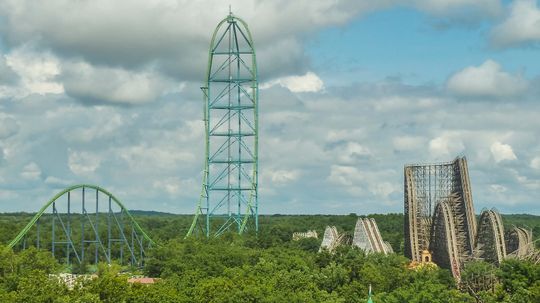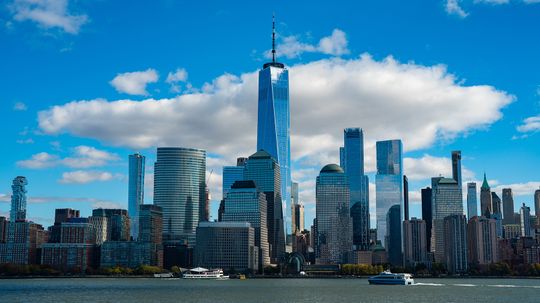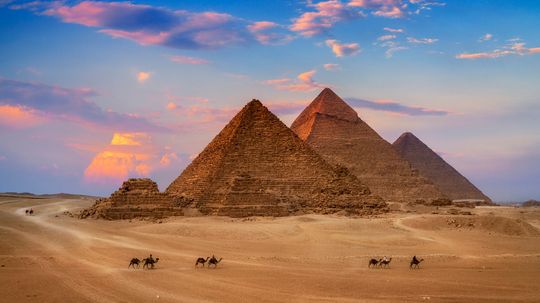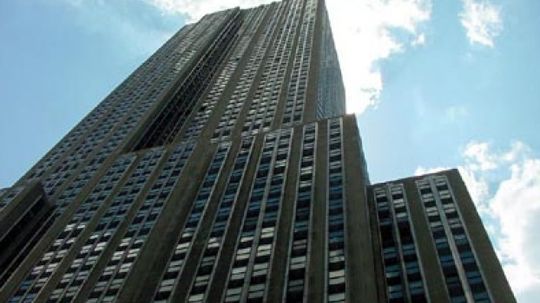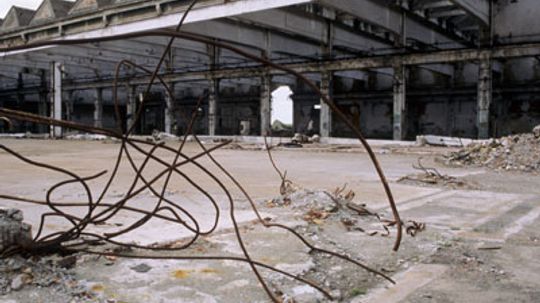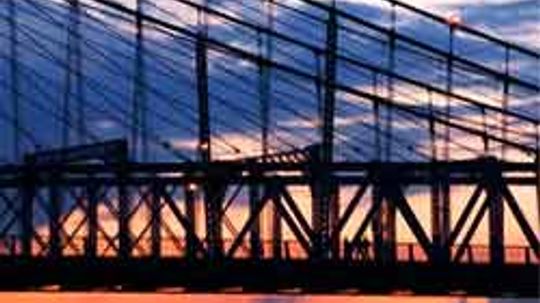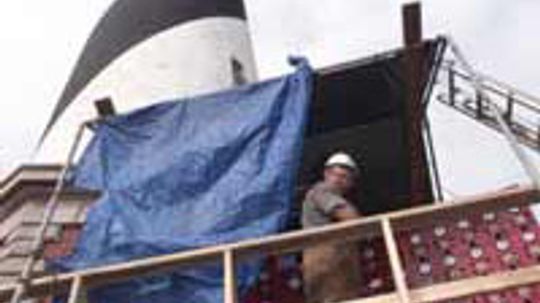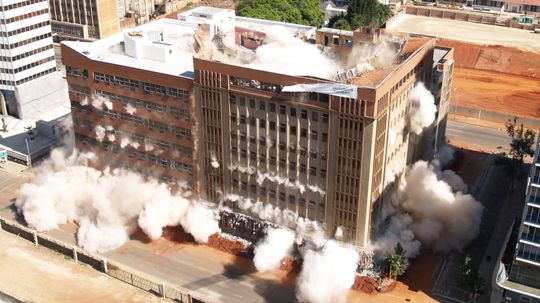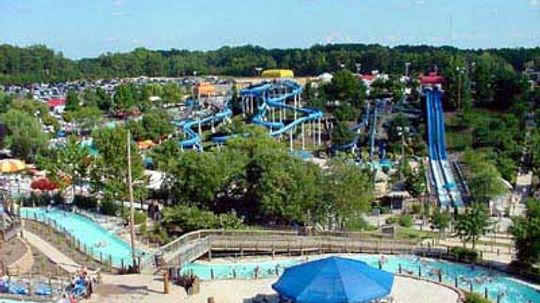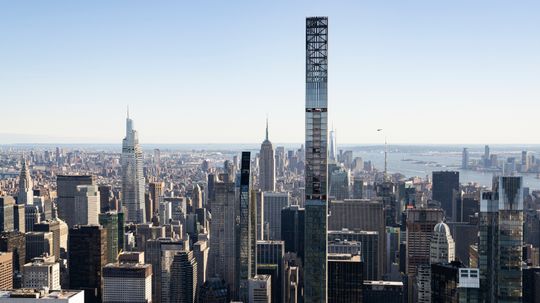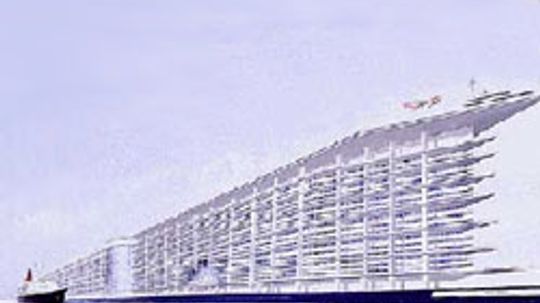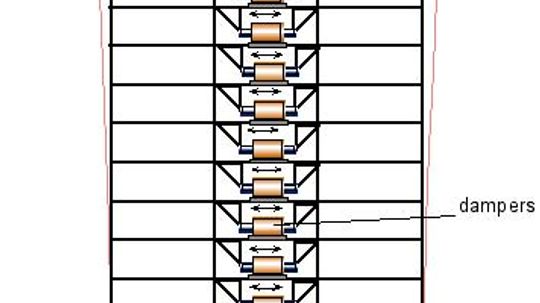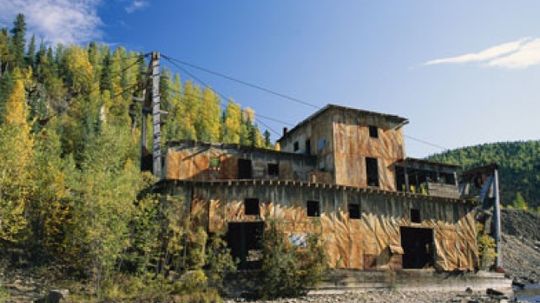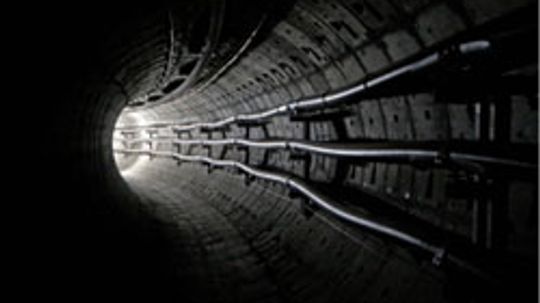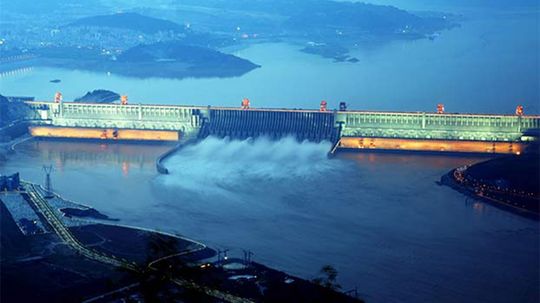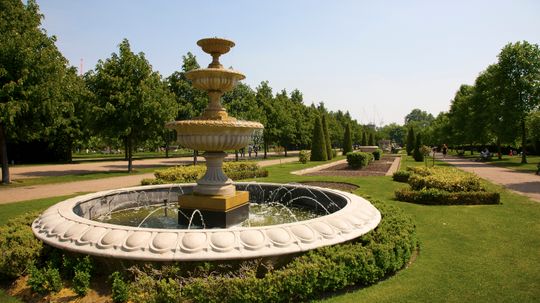Structural Engineering
Buildings and structures take careful planning in order to ensure that they don't collapse or fail in any way. Structural engineers analyze and study the way in which buildings support loads.

The World's Most Awe-inspiring Glass Buildings

10 Innovative Architects to Watch

16 World-Famous Architects and Their Impact
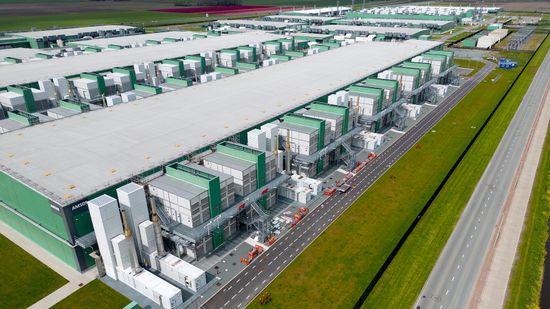
Who Builds Data Centers? Where? Why? We Have So Many Questions

The Steepest Road in the World, Plus 9 Rival Inclines
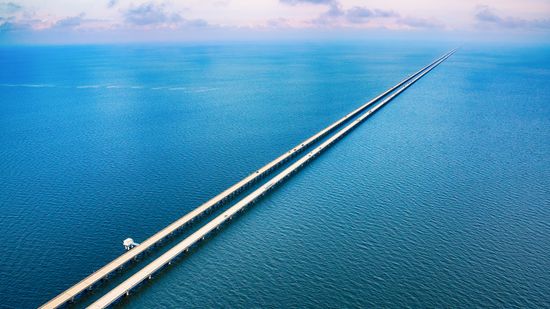
Here's Longest Bridge in the U.S., Plus 7 Runners-Up

10 Types of Swords for All Sorts of Circumstances

A Horrifying Russian Lathe Accident Highlights Vital Safety Protocols
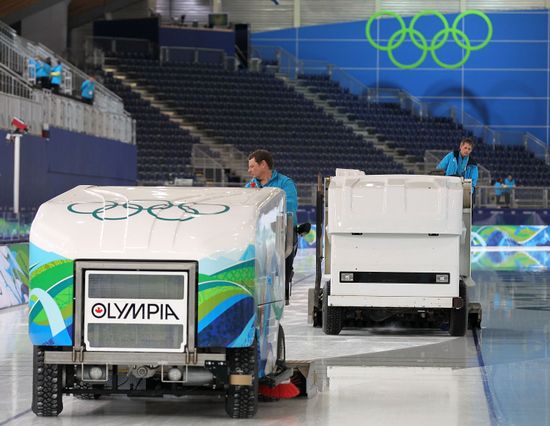
How Zambonis Work

What's the Hardest Wood in the World?
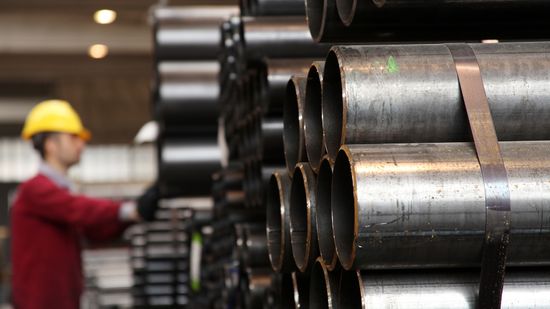
10 Types of Metal (and We Don't Mean the Music)

Are food-based plastics a good idea?

Your Thoughts Could Activate a Tiny Robot Inside Your Own Brain

How Star Wars Works: Fan-built Droids

Robot Pictures
Learn More
Some people scream their lungs out on roller coasters. Others hold their arms high and beg for more. Which camp would you fall into if you rode the scariest roller coaster in the world?
There is no shortage of incredible roller coasters for thrill seekers and theme park enthusiasts to enjoy globally. Just as the "space race" encouraged countries to shoot for the stars, the "coaster wars" have pushed theme park engineers to test the boundaries of death-defying drops and ludicrous speeds.
By Mitch Ryan
When you look at the tallest buildings, you're not just gazing at steel and glass; you're witness to a place's aspirations for greatness. These record-breaking skyscrapers reshape urban space, optimize office space and serve as iconic landmarks.
By Mack Hayden
Advertisement
When you think of the imposing stature of pyramids, you might picture the Great Pyramid of Giza. But the Egypt-based structure is by no means the only impressive pyramid in the world.
By Yara Simón
Why are blueprints blue and not some other color? There's a specific chemical process behind it, and its discovery has all the elements of a dark fairy tale.
One of the most travelled stretches of U.S. highway was designed by a woman who loved mathematics and wasn't interested in being a teacher. Who was she, and where is it?
Steel-framed skyscrapers are common sights in any city skyline these days. But someone had to be the first to build up, up, up. Find out where this architectural standard was born.
Advertisement
It took years to construct the 110-story World Trade Center towers and less than an hour to bring them down to rubble. What ultimately caused the towers to collapse on Sept. 11, 2001?
Bridges move cars, trains, bikes and people, among other things. These 10 may even move your soul with their engineering ingenuity and beauty. So which 10 make the cut?
Have you ever passed by an abandoned warehouse or gas station and wondered why the government doesn't just tear it down? Well, it may be a brownfield.
By Echo Surina
Bridges are amazing displays of scientific engineering. This collection of pictures highlights some of the most spectacular structures ever created.
Advertisement
Hefting a sofa up a flight of stairs can take a lot of logistics. So what does moving thousand-ton buildings across cities -- or even oceans -- entail?
Safe, professional building implosions combine mathematics, intuition and sheer explosive power. Find out how the experts bring down huge structures without damaging the buildings nearby.
By Tom Harris
When the heat sets in, there's nothing like a day at the water park to cool things down -- water parks and their massive wave pools are a huge weekend attraction. Ever wonder what kind of machinery it takes to produce a wave? Learn exactly how an oce
By Tom Harris
It's a leap of faith onto a curvy steep wet chute... Discover how water slides work and what draws thrill-seekers to them.
By Tom Harris
Advertisement
The twin towers of the World Trade Center were true originals -- their history is one of innovation, persistence and grand ideas.
By Tom Harris & Yara Simón
Is there an easy way to measure the height of a cell phone tower in my neighborhood?
The world's first floating city is absolutely gigantic, fully loaded with amenities and necessities and could set sail in about three years. Find out what the Freedom Ship has in store for its lucky residents.
By Kevin Bonsor
Smart Structures will completely change the way buildings react to earthquakes! See how they will work!
By Kevin Bonsor
Advertisement
People build skyscrapers primarily because they are convenient -- you can create a lot of real estate out of a relatively small ground area. They're also awe-inspiring. Skyscrapers capture our imagination -- how high can we build them? Learn about the architecture and design of these monumental buildings.
By Tom Harris
They don't have engines, brakes or accelerators. No, these amazing machines rely on physical, centripetal and gravitational forces to urge thrills, screams and that sinking stomach feeling we all love (and hate). Read more about the science of fun.
Abandoned mine shafts may look romantic with their clapboarded entrances and rusting pickaxes, but they can be deadly. So who ensures that these dangerous sites are properly closed up? You may find the answer a little unsettling.
By Josh Clark
A tunnel can be simply defined as a tube hollowed through soil or stone, but actually constructing a tunnel is a challenge. Find out how tunnels are built.
Advertisement
Whether we're trying to save a sinking city or dig a massive tunnel, our appetite for construction knows no bounds. But if designers had known the actual cost of these 10 projects, they might have gone back to the drawing board.
Rome is famous for having large public fountains that work without the use of any kind of mechanized pump. How were these fountains able to generate enough water pressure without a motor? Check out this article for the answer to this question.

